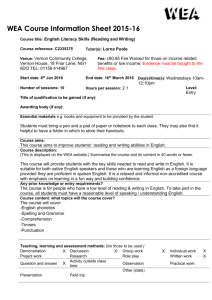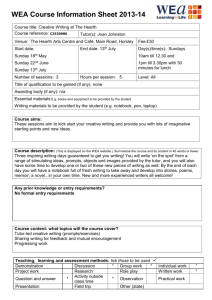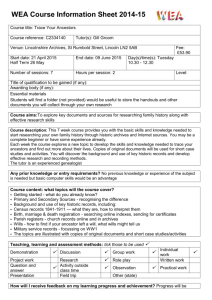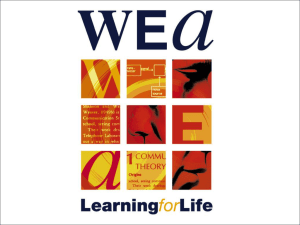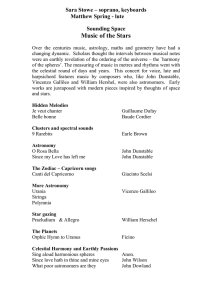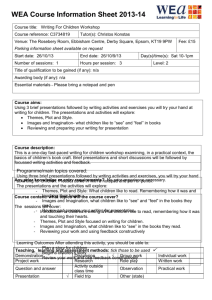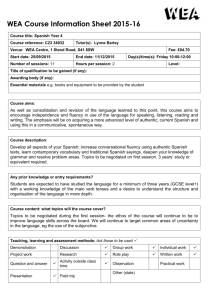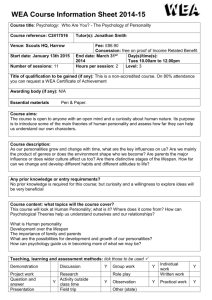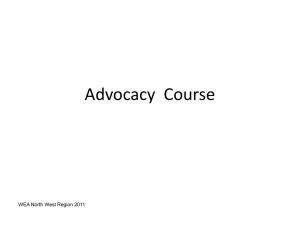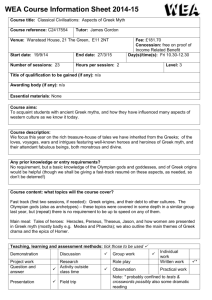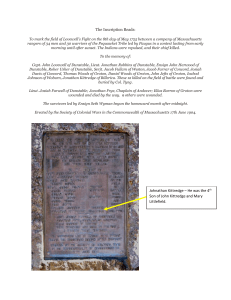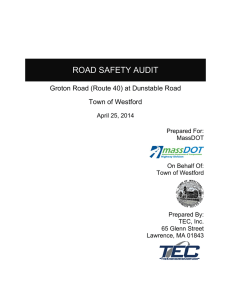COURSE OUTLINE
advertisement
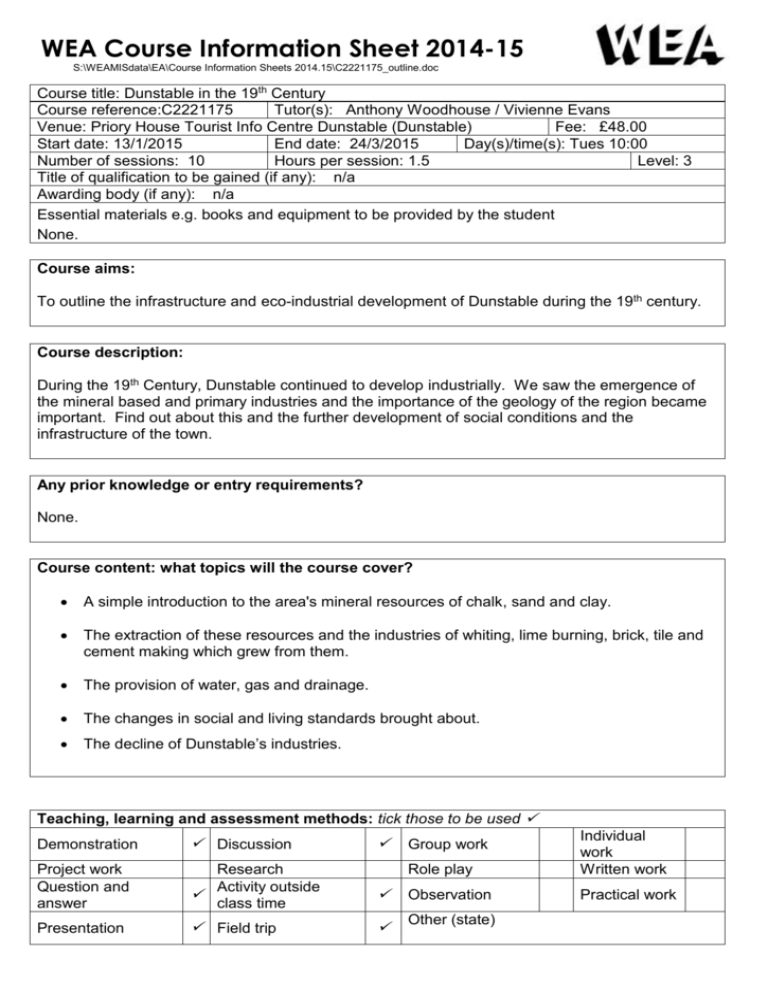
WEA Course Information Sheet 2014-15 S:\WEAMISdata\EA\Course Information Sheets 2014.15\C2221175_outline.doc Course title: Dunstable in the 19th Century Course reference:C2221175 Tutor(s): Anthony Woodhouse / Vivienne Evans Venue: Priory House Tourist Info Centre Dunstable (Dunstable) Fee: £48.00 Start date: 13/1/2015 End date: 24/3/2015 Day(s)/time(s): Tues 10:00 Number of sessions: 10 Hours per session: 1.5 Level: 3 Title of qualification to be gained (if any): n/a Awarding body (if any): n/a Essential materials e.g. books and equipment to be provided by the student None. Course aims: To outline the infrastructure and eco-industrial development of Dunstable during the 19th century. Course description: During the 19th Century, Dunstable continued to develop industrially. We saw the emergence of the mineral based and primary industries and the importance of the geology of the region became important. Find out about this and the further development of social conditions and the infrastructure of the town. Any prior knowledge or entry requirements? None. Course content: what topics will the course cover? A simple introduction to the area's mineral resources of chalk, sand and clay. The extraction of these resources and the industries of whiting, lime burning, brick, tile and cement making which grew from them. The provision of water, gas and drainage. The changes in social and living standards brought about. The decline of Dunstable’s industries. Teaching, learning and assessment methods: tick those to be used Demonstration Discussion Project work Question and answer Research Activity outside class time Presentation Field trip Role play Individual work Written work Observation Practical work Other (state) Group work How will I receive feedback on my learning progress and achievement? Discussion with the tutor An individual learning plan Learning outcomes: these are the intended outcomes and may be revised in discussion with the class. Students are encouraged to think about and identify their own individual outcomes. By the end of the course, students should be able to: 1. Outline the factors that made Dunstable suitable for the industries that developed. 2. Recognise how the rise of industry and population lead to the development of the infrastructure. 3. Give reasons for the decline of local industries. 4. Describe how the local geology affected the rise of industries in this area. Reading and information sources: Is any reading/preparation essential or desirable? Books and internet sources will be identified during sessions. Suggestions for progression to further study or for using the skills and knowledge gained: Students may wish to explore other courses on economics, industrial archaeology and industrial history provided by the WEA, as well as universities and local colleges. You can read about your entitlements and responsibilities as a WEA student in our leaflet, Services for Students here http://www.wea.org.uk/courses/information This includes information on fees, learning support and financial support. As part of your first course you accept a learning agreement. This applies to all courses you take in this academic year. You should have a copy of the learning agreement (the tear-off portion of your enrolment form), but if not please ask for a copy from your tutor. You can enrol online for some courses http://www.wea.org.uk/courses WEA Eastern Region, 3rd Floor Cintra House, Cambridge CB2 1JP Tel: 01223 417320 Email: eastern@wea.org.uk Website: wwww.eastern.wea.org.uk The Workers’ Educational Association (WEA) is a charity registered in England and Wales (number 1112775) and in Scotland (number SC039239) and a company limited by guarantee registered in England and Wales (number 2806910). Registered Office: Workers’ Educational Association, 4 Luke Street, London, EC2A 4XW
